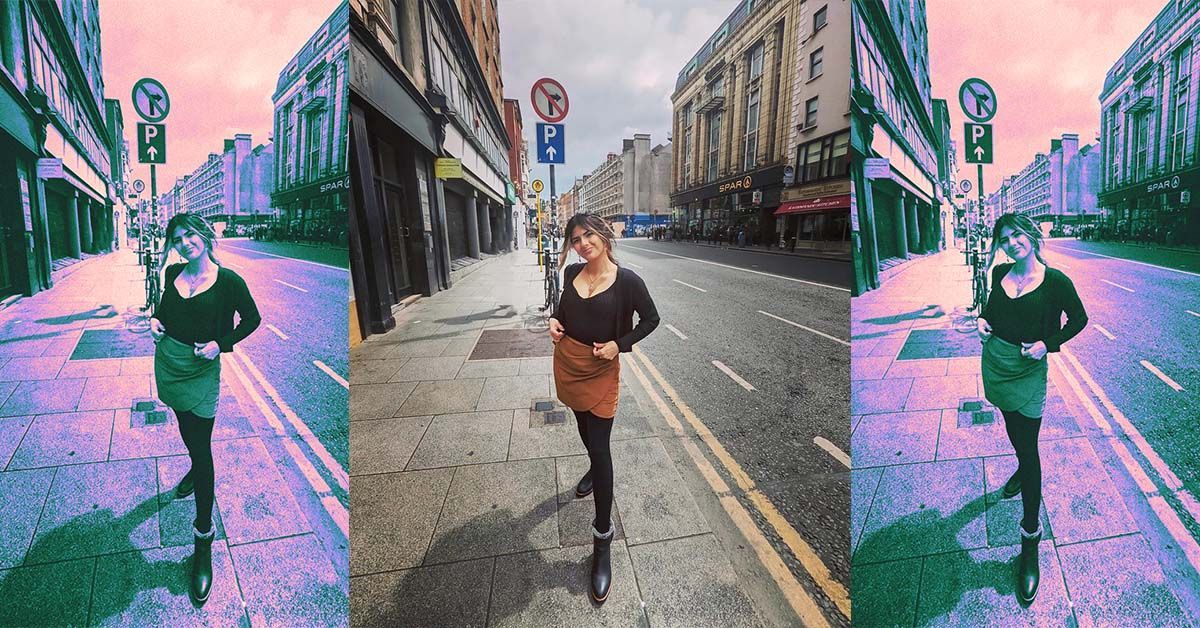All Together Now
Naba Rizvi challenges AI to be more inclusive.
Published Date
Story by:
Topics covered:
Share This:
Article Content
This story was published in the Fall 2023 issue of UC San Diego Magazine.
Imagine living life on the hardest mode in a video game. That’s how Naba Rizvi, a neurodiverse doctoral student, describes living with a disability.
“When I graduated from the University of Toledo in 2020, I was severely burnt out from overexerting myself,” she says. “My doctor was surprised I had graduated with a near-perfect GPA because my disability impacts my ability to remember and process information.”
As an autistic woman and a first-generation college student, the odds were even more stacked against her. During her undergraduate years, Rizvi recalls facing social isolation, which she believes was due in part to widespread beliefs that marginalize autistic people by categorizing their distinct communication preferences as a social skills deficit. She says these same misconceptions have shaped contemporary computer science research.
Rizvi’s research in UC San Diego’s Department of Computer Science and Engineering focuses on the design of artificial intelligence (AI) apps for autistic users, taking into consideration the perspectives and unique needs of a population whose social behaviors have been historically marginalized.
“In order to improve AI in general, we need to avoid reproducing the inequities that may exist in our society,” she says.
To move toward more inclusive and neurodiverse AI, she believes researchers must start by changing the fundamental understanding of neurodivergence. “If we fail to make such systems inclusive, we may inadvertently contribute to anti-autistic ableism in our society,” she says.
An example of this is the hiring systems that use AI to determine the emotions and engagement levels of applicants during interviews. Research has shown that the facial expressions of people with autism spectrum disorder don’t always mirror their emotions. When face reading is done by AI hiring systems that are programmed to approve only neurotypical facial expressions, it leads to a high likelihood of misinterpretation and marginalization of people with autism.
In fact, a 2020 study out of the U.K. found that autistic job seekers are at a disadvantage because they are less likely to engage in “impression management” strategies to persuade employers to hire them.
“The adoption of biased AI systems will only contribute to, and possibly even worsen, the discrimination they face in the hiring process,” says Rizvi.
Her advocacy for accessibility in technology design gained national attention when she was honored as a Computer Science Hero by CSEdWeek, prompting a personal congratulations from Vice President Kamala Harris.
“When my mama heard the vice president sent me a letter, she cried because she knows how far I’ve come and the obstacles I’ve had to overcome to get here,” she says.
Rizvi, who plans to complete her doctorate in 2025, has spoken on neurodiversity panels at industry-leading conferences such as Grace Hopper, Tapia, SigCSE and NeurIPS, and she received the 2020 National Center for Women and Information Technology Collegiate Award, the 2018 Google Women Techmakers Scholarship and the 2019 Adobe Research Women-in-Technology Scholarship.
Learn more about research and education at UC San Diego in: Artificial Intelligence
Stay in the Know
Keep up with all the latest from UC San Diego. Subscribe to the newsletter today.





